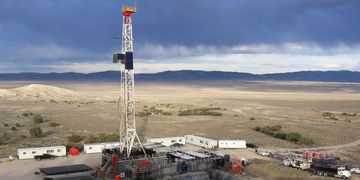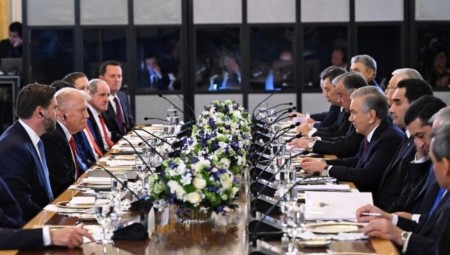With such significant events as the G20 Environment, Climate and Energy Ministerial Meeting, the first ever UN High-level Dialogue on Energy and the two-years-long awaited UNFCCC COP26 in Glasgow, United Kingdom next month, 2021 has been dubbed as a year that will ‘make it or break it’ on climate action.
Coming on the back of the ‘lost year’ of 2020, which will not only be remembered for the most devastating pandemic in modern history, but also as the hottest year in recorded history, it is no wonder that the fight against climate change has reached a palpable frenzy.
Today, the percentage of countries that consume more resources than their ecosystems can regenerate is as high as 74%. In contrast, 789 million people are living without access to electricity and hundreds of millions more lack access to clean cooking fuel. These stark realities diminish the progress made on Sustainable Development Goals (SDG), and certainly the SDG7 of “Affordable and Clean Energy”. They also highlight why the world needs to go ahead and assume its responsibility to provide access to affordable, reliable, sustainable and modern energy for all. There are lives at stake.
To compound the challenges further, just as the wheels of global economy were whirring to a much anticipated start after a painful wait of 18 months, unprecedentedly high gas prices are now fomenting concern from Europe to Asia and elsewhere with the winter season looming large in the northern hemisphere.
These recent developments, which sadly affect the entire strata of society still reeling from the devastation caused by COVID-19, validate the long-held position of the Gas Exporting Countries Forum (GECF) on a balanced approach to managing the energy transition.
The Forum, an intergovernmental coalition of 18 countries that represent the largest share of proven natural gas resources, production and trade in the world, has formally registered its efforts to the international pursuit of attaining the UN Sustainable Development Agenda 2030, eradicate energy poverty, and provide uninterrupted access to modern energy sources, especially for the most vulnerable communities, most recently through its statement to the UN High-Level Dialogue on Energy.
Our Forum has reserved its most exceptional efforts to analyse, assess, and evaluate the different pathways in the energy transition context. We believe that technology will have a significant role in decarbonising the entire energy sector.
Based on available science and recognised research, the GECF advocates the environmentally friendly credentials of natural gas, which is an efficient pathway to achieve immediate carbon emissions reduction by substituting the more carbon-intensive fuels. This positive effect has already been demonstrated in several major economies, which have reduced their carbon intensity by improving the penetration of natural gas.
Currently, the gas industry is envisioning a deep decarbonisation of natural gas, including through carbon capture, utilisation and sequestration and natural gas-led hydrogen. These options add to other existing and novel technologies to improve efficiency that range from digitalisation and electrification of gas-related processes to detection and reduction of methane leakages. All these technologies will be instrumental in reducing greenhouse gas emissions from natural gas-related operations and along the entire supply chain.
In the same spirit of continuous excellence, the GECF has established its Environmental Knowledge and Solutions (EKS) initiative to foster a supportive and collaborative platform where best practices will be exchanged and support will instigate improved capabilities that can confront gas-related environmental issues head on.
Gas was, is, and will remain the most realistic option to attain the energy transition, spur economic growth and social progress by providing competitive prices and a secure and abundant energy source. These benefits are further reinforced by the diversification of gas production centres and routes and the emergence of small-scale LNG solutions. The latter enables gas to reach regions with underdeveloped infrastructures, improve energy access and enlarge the potential of this fuel in different sectors such as road transport, bunkering, and small industrial projects.
This vision is in complete alignment with SDG7 and is rooted in the 2019 Malabo Declaration of the GECF Heads of State and Government, which supports the fundamental role of long-term gas contracts as well as the gas pricing based on oil/oil products indexation, to ensure stable investments in the development of natural gas resources. Such principle provides a solid base for, most importantly, natural gas buyers as well as supplies protection against price volatility.
The Declaration implores the Forum to “promote cooperation with African countries, where hundreds of millions have no access to electrification and clean cooking fuel, to use gas as the core source of energy in their development programmes and climate change policies.”
The GECF is encouraging and supporting global investments in energy efficiency and sustainability, innovation and digitalisation. The Forum joins the momentum to promote the circular carbon economy, which looks at the CO2 resulting from hydrocarbon sources as a real opportunity to capture more value through innovative technologies and practices. In this regard, the GECF views CCS (carbon capture and storage) and CCUS (carbon capture, utilisation, and storage) as promising routes for reducing the environmental footprint of natural gas supply chains, building on the huge existing synergies and knowledge capital developed by the oil and gas companies.
The Forum disagrees with the attempts to use climate agenda to perpetuate energy inequality, introduce unfair discriminatory practices, and instigate “green protectionism” mechanisms that harm global trade in gas-related products and investments.
The industry is deeply concerned about the aggressive and unilateral policies elaborated under the climate agenda that aim to impose restrictions on trade, such as Carbon Border Adjustment Mechanisms. We consider these approaches as discriminatory and without the moral principles of ‘energy for all’ and environmental justice that should drive the global effort to fight climate change.
Notwithstanding the ongoing reductionism and cancel culture, the GECF aspires to present a balanced energy-transition roadmap for a constructive debate that will enable policymakers to instigate, avoid market fluctuation and unnecessary economic hardship, and lead a realistic energy transition that actually benefits all.
By HE Yury Sentyurin, Secretary General, Gas Exporting Countries Forum















